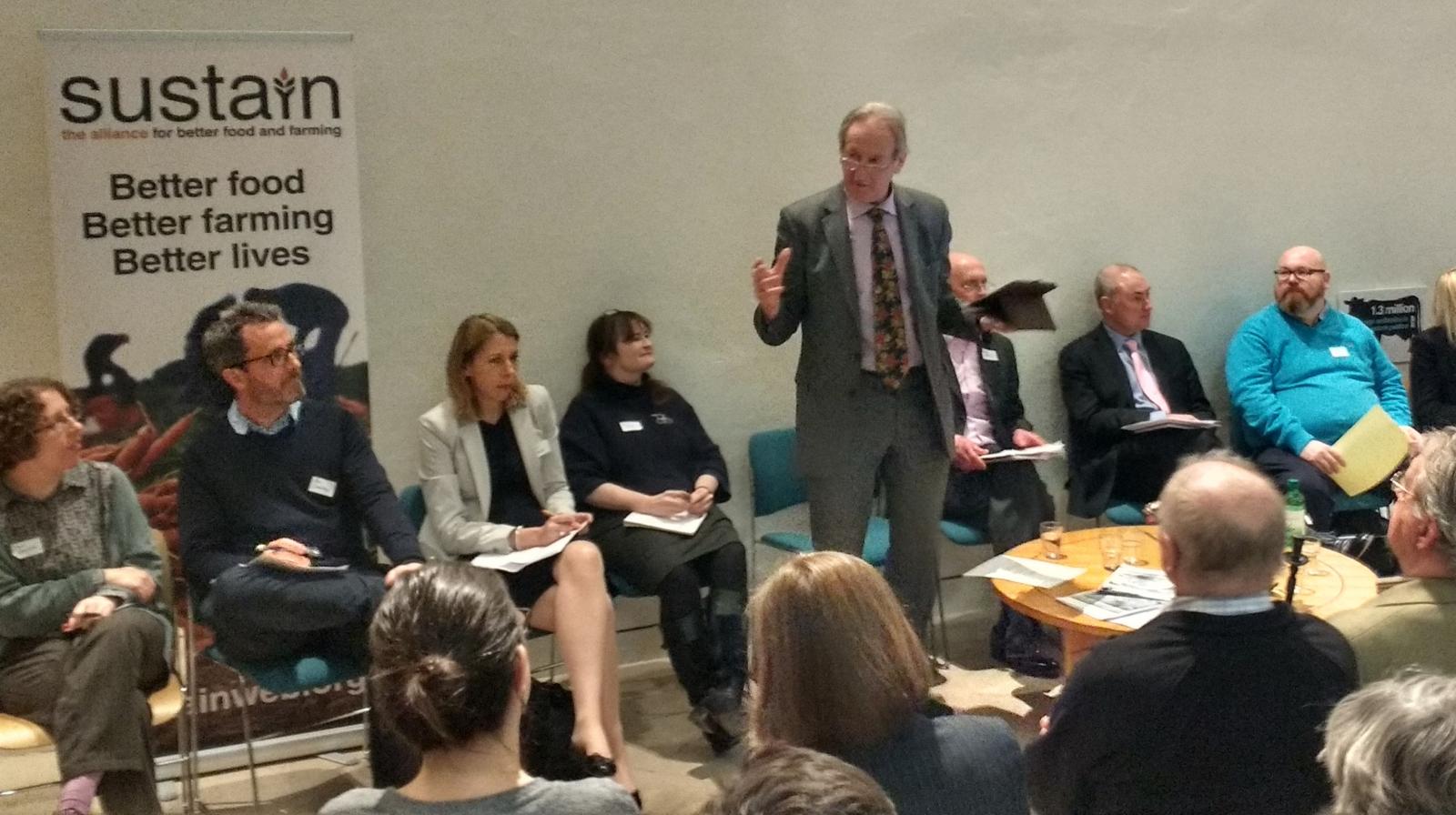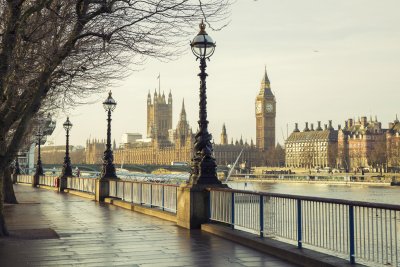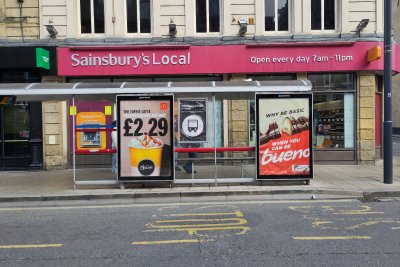These informal notes were taken by Sustain, for the benefit of those unable to attend, and to stimulate further discussion of the key issues. Whilst we have endeavoured to ensure reasonable accuracy of the spirit of contributions, this is not a transcript, and comments must not be quoted as coming directly from any of the contributors, nor from the organisations named.
Opening talk by Lord Cury of Kirkharle
Lord Curry of Kirkharle addressed the question: What shall we do about Brexit? Opportunities to achieve healthy, fair, humane and sustainable food, farming and fishing – for the benefit of everyone.
The session was chaired by Shaun Spiers, chief executive of the Campaign to Protect Rural England, who is also vice-chair of Sustain: The alliance for better food and farming, and attended by 90 members of the Sustain alliance and other guests. Lord Curry started by summarising what we know about Brexit:
- There is enormous uncertainty, which is likely to continue
- The exit process will be complicated
- The UK is set to trigger Article 50 by the end of March, after which a two-year negotiating period will ensue
- New trade agreements cannot be signed until after the exit process is complete
- There will be a Great Repeal Bill to transpose EU law (as much as it can) into domestic law.
- Around 30% of law for which Defra has responsibility will not be covered by the Great Repeal Bill, for example the EU Habitats Directive
- As announced by Theresa May PM that very day, the UK will not be part of the European Single Market
- Defra will be consulting in 2017 on two 25-Year Plans, on ‘food and farming’, and later in the year on ‘environment’
We should be rightly concerned about the lack of prominence of food, fishing and agriculture in public debate and the policy agenda – other issues are currently dominating government thinking.
Lord Curry structured his response to the question ‘What shall we do about Brexit?’ around four themes:
- Financial consequences
- Regulation
- Migration
- Trade
1. Financial consequences
This is an area of enormous concern: What will happen to replace (if at all) the current £3 billion in public support for agriculture and rural development? He deliberately avoided the term ‘subsidy’, saying ‘support’ needs to be agreed, explained, acceptable to the public and explicitly payable for ‘public goods’ that need to be explained and accepted too.
Improvements made since the Policy Commission on the Future of Food and Farming, 2002 (which he chaired) may be lost. In fact, those gains are already being lost. Until recently, 70% of farm land was in some sort of agri-environment scheme, which felt like good progress. We should be especially worried about the uplands. How can continued public support be justified? What function do we want them to perform? Grazing? Water retention? Carbon retention? Energy generation? Argument needs to be made to both the Treasury and the public.
Another worry is that we could lose the cross-compliance requirements that tie farm payments to environmental protection measures: without this, the lever for change will be lost.
2. Regulation
Lord Curry headed up the Better Regulation Taskforce. Around 70% of the regulations that Defra oversee are EU based. Reviewing, evaluating and replacing these is a mammoth task. Perceived over-regulation was presumably a motivation for many farmers to vote to leave the EU. But it is not just the EU that demands regulation: markets all over the world, and consumers, also require regulation on – for example – food safety and traceability. Crises have arisen in the recent past because of lack of such regulation, such as E.coli and horse meat. The last thing the farming industry needs is to lose the confidence of the public through the wholesale dismantling of regulation. There is some that could be trimmed away – but this has to a large extent already happened. The low-hanging fruit has already been picked. The assumption that there is a burden of surplus regulation waiting to be dismantled is not realistic.
3. Migration
The issue of migration is very important. The UK needs access to seasonal labour, especially for fruit and vegetable production. Lord Curry did not dwell on this theme, but flagged it as of great importance.
4. Trade
This is enormously important, and we lack understanding of the implications of leaving the EU and Single Market. Tariff arrangements will be critical. There are some eye-watering examples of high tariff rates that could be imposed on UK exports to the EU: over 40% on dairy, 6.8% on oil seeds, 17.7 % on lamb. These would represent huge barriers to farmers looking to export. Then there is the question of the import, then re-export, of traded goods within the EU: what will happen to these? For example, a large proportion of animal feed imported into the EU comes via Rotterdam, and what we need is then shipped to the UK. What will happen to livestock farming if farmers need to pay an import tariff on animal feed?
All options carry risks, and the number of separate negotiations involved is enormous. There is a strong argument that food and farming deserves the same special treatment – the same policy concern and special deals – that are being promised to the financial sector.
The timescales are challenging. There is likely to be a ‘significant period of disruption’ after the initial two-year period for completing the UK’s exit from the EU. New trade arrangements are unlikely to be in place immediately for a smooth transition. Even if farm support payments are extended to cover this period, markets will be disrupted.
How can we influence government and policy?
If we are to see this as an opportunity, the government needs to recognise that food, farming, rural economies and land management require a holistic approach. Policy ‘ownership’ straddles different government departments, and the experience of the 2002 Policy Commission for Food and Farming was that this creates a lot of difficulties.
We need to persuade government of the ‘bigger picture and bigger prize’ of health, sustainability and secure farm livelihoods, setting ‘a sustainable course for the next 20 years’. There is not much evidence so far that the government has got this message. Now that the government’s approach has been laid out [in Theresa May’s speech of 17th January 2017], Defra needs to start talking about all this, and civil-society organisations and farm groups need to start applying pressure to ministers and policy-makers.
Lord Curry concluded by commenting that this is the most important time since 1947 in terms of the implications for farmers, rural economies and the countryside. We need to talk to influencers, we need to communicate the importance of this agenda to the public, and we also have to make the case for retaining high British food standards and environmental protection.
Considered responses
Considered responses from Sustain alliance members and colleagues working on a wide range of issues relevant to the theme:
Vicki Hird, Sustainable Farming Campaign Coordinator, Sustain
The uncertainties are very evident, and this will continue to characterise the situation, particularly in relation to trade agreements and tariffs. But this is not an excuse to delay our own plans. We can create opportunities as well as respond to them. It’s time to stop being scared of speaking out, and to start acting and influencing. In particular, we need to act to prevent so many important standards and protections being lost. We need to be clever.
What can Sustain do to reach the public, to engage them in defending what’s important? Our organisations have collectively been talking about what farm policy might look like – but are we going in too detailed and technical too soon? How can we engage the people who are unfamiliar with these issues, don’t yet think any of this is important, and don’t yet know how much this will affect their lives? We need to find ways to reach out to people, and not just online. This is about good conversations and sometimes emotional engagement. We already have a pretty good shared vision; we more or less know what we want; we need to find out how this resonates with the many people who will need to support it.
The word ‘protectionism’ is resonant, but loaded with bad associations, but it is also about protecting our farmers and countryside. We must find ways to navigate such sentiments to underpin decent principles and values. And a further thought: A special case needs to be made for fruit and vegetables.
Marcus Gilleard, National Trust
The National Trust is committed to post-Brexit farming that restores the natural environment whilst producing the good quality food the nation needs. The two are bound together: without a healthy natural environment, the long-term viability of food production is in question, and the environment can’t be restored without farmers. The National Trust sees Brexit as an unprecedented opportunity, and is working with a range of groups and coalitions as part of Greener UK to press for historic improvements in how we value and support farming – in practice and policy.
A principle is that public money should only pay for what the public cares about but which the market can’t support. Farmers must also be paid a decent price for the foods they provide, whilst we also develop new markets that recognise other services they can deliver through good land management e.g. ‘slow, clean water’. It should be profitable and rewarding to manage land sustainably for both private and public benefit. Farming systems therefore need to be more in tune with natural systems. And connecting people with the countryside is vital too.
Change is coming, and we need common messages and a shared purpose to achieve the restoration of a productive, healthy and beautiful natural environment in a generation.
Simon Capewell, Faculty of Public Health
The public health community recognises the fundamental importance of food to public health. In relation to Brexit, we have to hope for the best and plan for the worst. The term ‘neoliberalism on steroids’ could applied to some of the forces at play, particularly around trade negotiations. However, FPH is part of an established UK Public Health Network and we can join with Sustain and others to build a wider alliance and call for an approach that prioritises health and sustainability.
As scientists, public health professionals can collect data and present evidence from a scientific standpoint. But clear, coherent and consistent public messages are also needed, to connect and engage with citizens, policy makers and politicians. For example promoting fruit and veg and greatly increasing UK horticulture, presenting sustainable diets as both healthy and good value, advocating plant-based diets and suggesting quality “meat as a treat” rather than as an (unsustainable) daily staple. Public health professionals can also support advocacy work to safeguard the quality of water, soil, air and the wider environment.
Vigilance is needed to substantially reduce the use of antibiotics in livestock, (so the alliance campaign on antibiotic controls is very welcome). The rumours that Defra is meeting regularly with industry are worrying. Defra also need to hear our arguments for health and sustainable food, strongly supported by a coherent communications strategy to inform and engage the public, and hence win increasingly wide political support.
Paul Bell, Unison
In the realms that Unison works on, regulation is a good thing! Brexit is likely to undermine workers’ rights and consumer health and threaten jobs. One example is Unison’s work on meat hygiene and inspection. The UK’s Food Standards Agency is already applying EU regulations ‘flexibly’. There are toe-curling statistics of the health threats that the hygiene inspectors keep at bay, and the number of carcasses taken out of the meat chain every year because they are unfit for human consumption. However, under de-regulation and industry self-governance, the meat industry may be able to decide for itself whether soiled meat, or meat with pus-filled abscesses, can be put into human food.
There are also concerns about the UK’s capacity to tackle new animal diseases coming in through new trade deals, such as tapeworm in meat from countries outside our normal trading areas. The government majority is just 14 votes: there is space to exert pressure.
Sue Davies, Which? (Consumers Association)
There may be opportunities longer term for cross-cutting, joined-up policy. But we are already starting to see price rises and the urgent task is to avoid losing existing protections. We are entering a complex world of trade and tariffs, which we need to fully understand the implications of, for example for food prices and quality. Theresa May made no mention of consumer protection in her speech. We may need to face the return of issues that we thought we had previously controlled under EU regulation, but are permitted by some of our possible new trading partners, such as hormones in beef, lack of GM ingredient labelling, and chlorine dips for chicken. She hopes the government will recognise that consumer confidence is vital. There are also profound concerns about the issue of enforcement, which may be much more onerous in terms of checks on imports and exports at a time when there are already extreme pressures on trading standards and environmental health officers.
Jean Blaylock, Global Justice Now
Whatever we do, it must not have unintentionally damaging consequences for the rest of the world. Currently, the least developed countries (LDCs) have tariff-free access, in recognition of the need to address extreme poverty: this must continue, as the very bare minimum. But we also need to recognise that most small-scale food producers – the people who provide 70% of the world’s food – do not export. Most of the food consumed in the world is traded through local and regional markets. We must take care that our activities do not damage these sustainable arrangements. The UK must not rescind on anti-dumping regulations. Any new subsidy schemes must not replicate old problems that damage developing countries and their local food systems. Indeed, the UK could do much more to develop its own local food systems – not motivated by protectionism, but in recognition of the importance of smaller farmers for biodiverse farming and sustainable land management.
Heather Hamilton, Client Earth
Marine and fisheries policy are also awash with uncertainties due to Brexit. There will be tricky issues to be navigated, relating to sharing stocks between nations; agreeing reciprocal agreements over access; and principles that must be observed. Sustainability must be at the heart of everything, including Maximum Sustainable Yield fishing. A discard ban, including full documentation of fisheries, must be maintained. Then there is the question of access to markets. Much shared management will be needed, and new arrangements will need to be underpinned by investment (not least for enforcement) as well as good governance, if people are to have confidence in the policy. Processes for involving stakeholders are also needed.
Dan Crossley, Food Ethics Council
We need to be altruistic and be aware of the impacts of our policies and decisions on other people in other parts of the world (and on animals too): there is a risk of becoming very narrow and protectionist. We still live in a global world, where solidarity has value. Dan set out our approach in an entertaining rugby game analogy, calling for our movement to be Food United. We have all been in a scrum that moves around the field without looking up. We need defence, a strategy. We need the crowd (the public) behind us, and perhaps ‘unholy alliances’, which may mean Sustain and members allying with industry on shared goals. But as in all good rugby games the best way to win is to give it a try! We should get behind the idea of a (Lord) Curry-style Food Brexit commission – to help (as a minimum) raise the profile of food and farming, but also hopefully to crack some tough policy challenges.
Points from the floor
Agricultural Christian Fellowship: Tariffs also protect our farmers. There are calls for tariff-free trade. Yet historians of the pre-War period should remind us that UK farming could not compete with cheap imports. Removing tariffs could be devastating.
Landworkers Alliance: Members of the LWA have developed credible alternative agricultural policies and want to be included in debates and policy discussions. We must articulate and amplify the groundswell of support for small-scale, agroecological farming.
Community Supported Agriculture network: The current policy environment, including planning, is very hostile to small-scale farming, which can be highly productive as well as ecologically protective. There are many people who would like to come into small-scale and agroecological farming, but the policy, conditions and land prices are set against them.
EcosConsultancy: On the point of ‘significant disruption’ – does this mean food riots? Or a new flowering of Community Supported Agriculture? Significant disruption after the UK leaves the EU sounds very serious: why is the financial sector getting special treatment and not farming?
Baby Milk Action: Trade rules are already very politicised. This could be an opportunity to set better principles and remove some of the perverse influences on standards and regulation, particularly to exclude industry from setting health and sustainability standards for ‘public goods’.
People Need Nature: Much is made of idea that public subsidies should be for public goods, but this is a very opaque idea – many people, including farmers, don’t understand what is meant by ‘public goods’ in the sense economists mean. Some would say that producing food – by whatever means – is a public good. So this is something that needs a lot of explanation and better communication.
Lord Curry: There is a case to be made for saying that food security is a public good. One of the fundamental responsibilities of governments is to ensure that the population is fed. However, this can support intensive production for export, which can be counter-productive in environmental terms.
The Orchards Project: We need to be careful that our language isn’t hi-jacked: sustainability and self-sufficiency can both be used to justify intensification and stock-piling, and consolidation of land and capital, ready for renewed dumping on international markets.
Sustain: Sustain wants to work with its members to clarify these issues, and work together collaboratively to champion sensible solutions. Our earlier AGM had demonstrated the very significant changes we can achieve when we work together. The Brexit agenda is enormous for food, farming and fishing, so please do get involved.
The meeting closed with thanks to Lord Curry, the speakers, Sustain alliance members and guests, and concluded with a lively networking event. To be added to Sustain's Brexit Forum mailing list, email: ben@sustainweb.org
 Lord Curry of Kirkharle addresses the Sustain Annual Gathering, 2017
Lord Curry of Kirkharle addresses the Sustain Annual Gathering, 2017

